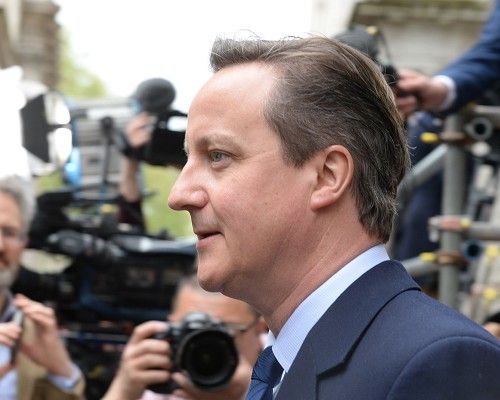

David Cameron will be spending the weekend drawing up lists of names of ministers in his new Government after the shock General Election result returned him to power at the head of a Conservative majority administration.
The Prime Minister moved swiftly to put a stamp of continuity on his new administration by reappointing Chancellor George Osborne, Foreign Secretary Philip Hammond, Home Secretary Theresa May and Defence Secretary Michael Fallon to their old posts within hours of his reinstallation in 10 Downing Street.
He is expected to wait until Monday to complete his Cabinet and finalise more junior ministerial posts over the coming week.
The Prime Minister has a greater scope for patronage among Conservative MPs now that he no longer has to make space in his Cabinet for five Liberal Democrat MPs as well as a dozen or more in the lower ministerial ranks.
Mr Osborne's significance in the new administration was reinforced by his appointment as First Secretary of State - the ranking Cabinet minister and effectively number two to the PM.
The award of the title, previously held by William Hague, will fuel expectations that Mr Cameron will not appoint a Deputy Prime Minister to replace Nick Clegg.
Having increased Conservative ranks at Westminster to 331, securing a 12-vote absolute majority in the Commons, Mr Cameron will be preparing to push through his manifesto agenda in its entirety.
But he will be aware that he remains vulnerable to backbench Tory rebellions, which would only have to muster seven MPs to threaten him.
He must draw up a Queen's Speech for the State Opening of Parliament on May 27, which is likely to include measures to drive through the £30 billion austerity package - including £12 billion of welfare cuts - which Mr Osborne says is needed to eliminate the state deficit by 2017/18.
He will seek to press ahead with plans for the renegotiation of Britain's membership of the European Union in time for an in/out referendum in 2017.
Meanwhile, Mrs May made clear that reviving the Communications Data Bill - blocked by Lib Dems, who scorned it as a "snoopers' charter" - would be a "key issue" for her in her second term.
Jeremy Hunt - who was waiting to hear whether he would be reappointed Health Secretary - told Channel 4 News that the welfare cuts "have to start quite soon in order to deliver our deficit reduction plans", adding: "We've said we need to make significant cuts in the first two years of this Parliament."
He made clear he expected constitutional issues to take up a considerable proportion of Mr Cameron's effort during his second term after the PM called SNP First Minister Nicola Sturgeon on the evening after his victory to reiterate his commitment to "governing with respect" for Scotland and "implementing devolution".
"If you look at the big picture for the next five years, it's very significant that David Cameron chose to talk about Scotland and the United Kingdom both in his acceptance speech in his constituency and on the steps of Downing Street," said Mr Hunt.
"We have to think in a much more proactive way about how to bind our country together. We've taken it for granted for many years, we can't do that now with the changes we've seen north of the border.
"Since the advent of the Scottish Parliament in 1997, and maybe before that, we haven't had constitutional stability and we need that if you believe in the United Kingdom. I think that'll be one of the big things."
Comments
Comments on this story express the views of the commentator only, not Bailiwick Publishing. We are unable to guarantee the accuracy of any of those comments.